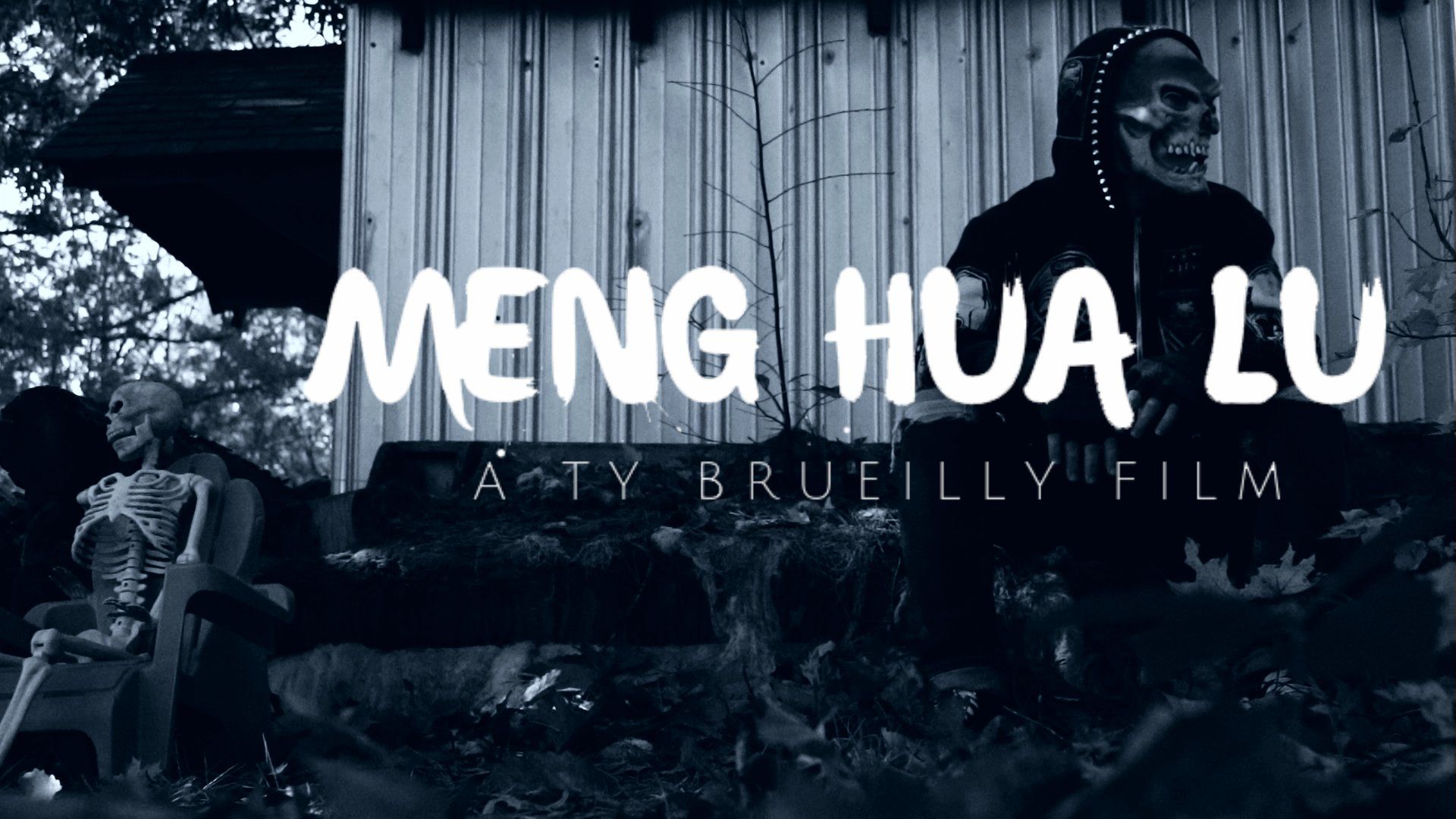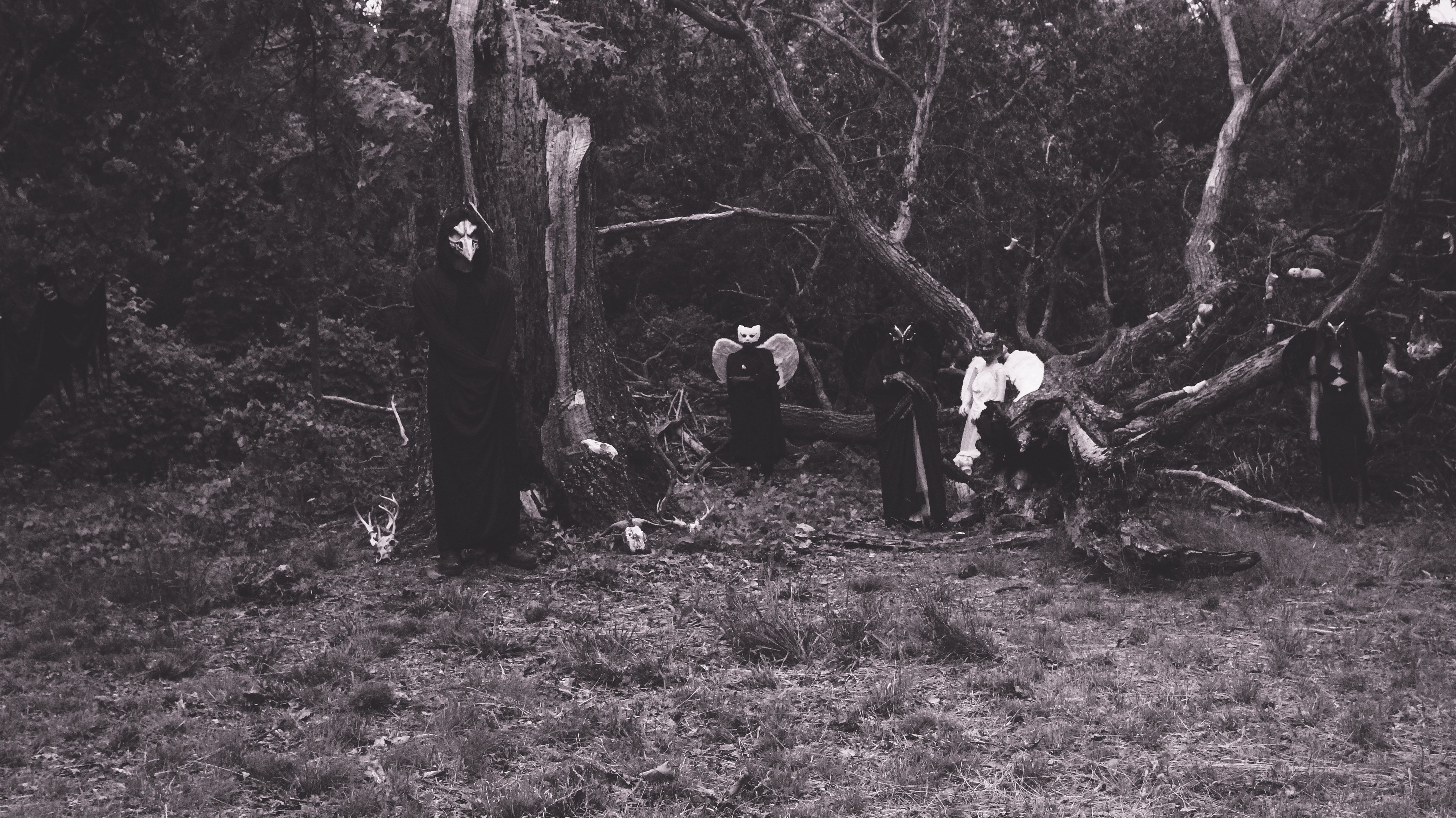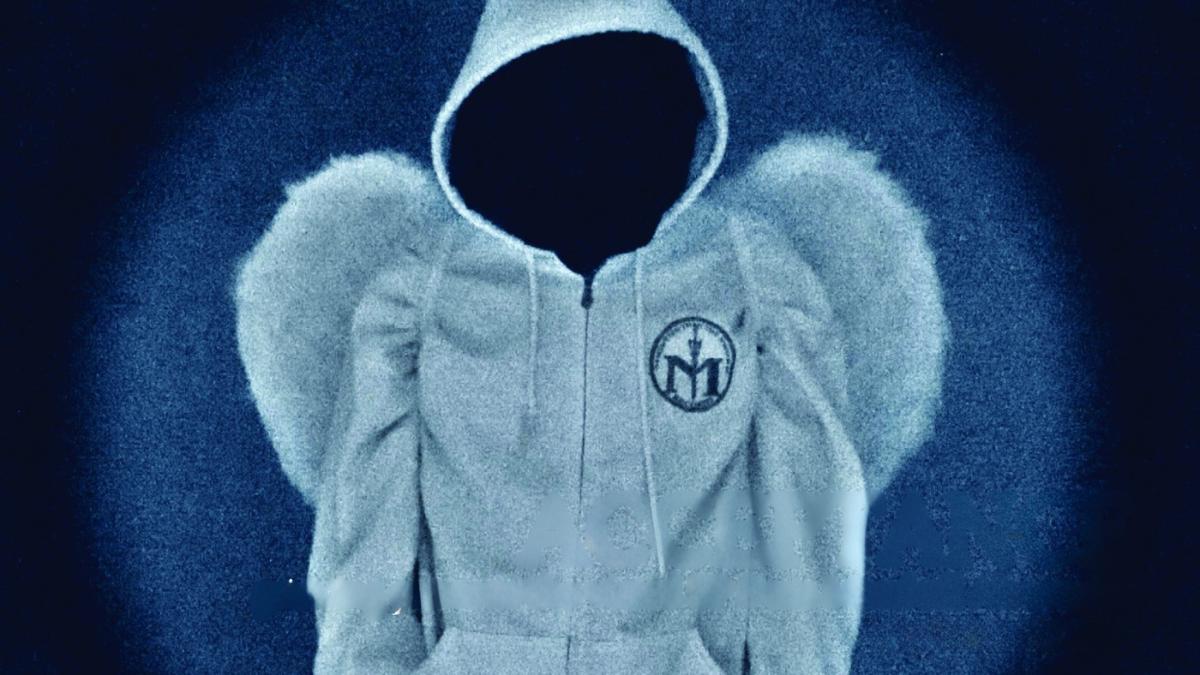Produced by Ty Brueilly, also known as Ty Bru, “Meng Hua Lu” is another installment of the “SHUCKS” Cinematic Universe. You can read about the first installment and silent film “SHUCKS” and other parts of the series, including “GRIEVING PROCESS” on our site.
Ty Brueilly doubles as a filmmaker and rapper, also known for his musical works such as “A Night in Charlotte with Sweeney Ty”, “95’ Goodie Mob” (as a filmmaker), and “I Lost An Angel in L.A. Or The Complexity Of Human Emotions”. “Meng Hua Lu” is another of the several must-watch titles in his filmography for many reasons that we’ll dive into today.
The title ‘Meng Hua Lu’ can be read as ‘Record of a Beautiful Dream,’ a fitting reflection of the film’s meditative and surreal atmosphere.
Where “SHUCKS” was raw and grounded in grief, “Meng Hua Lu” ascends into the surreal, pushing viewers further into metaphysical exploration with a sequence of abstract but minimalist visuals. It is less about story and more about teaching us to sit with uncertainty. The film makes use of long takes and lingering shots with overexposures to leave you in the same space, feeling the narrative elements and thinking about what they mean. The overlays and intercut B-roll, reminiscent of home video-style footage with echoing background music, act as striking images that feel like reflections of our masked protagonist’s thoughts. It leaves the viewer with an eerie sense of hope and nostalgia.
One of the things that a SHUCKS cinematic universe never lacks is attention to detail. Our protagonist’s beaked mask has intricate patterns that immediately capture the eye, and in turn create intrigue about the black and white scenes. It’s easy for black and white cinema to fall into ambiguous territory, especially visually, since the color palette is so monotonous. However, SHUCKS cinematic universe never fails at utilizing texture and shadows to create a multi-dimensional viewing experience. “Meng Hua Lu” is no different.
We do have the occasional pops of color, especially green, as the editing becomes faster paced and the music enters harder core rock territory. These spontaneities act as a transition themselves, letting us know that, despite being a silent film, we can feel the change that happens within our character in an immersive way. In fact, “Meng Hua Lu” feels like a montage look into our characters before, after, and even right now.
“Meng Hua Lu” is not linear by any means. It feels like we’re in a particular moment, but seeing what has defined that moment at the same time. We deal with themes of overlapping lives, deaths, accidents, and more. Overall, it’s a depiction of all of the forks and paths that we go on through life, even the ones along corn fields or at the seashore. The silence of this film is loud in the best way as the storytelling feels like a dreamlike hallucination… And much like a dream, “Meng Hua Lu” leaves its visuals open to interpretation. But while it’s open to interpretation, you (as the viewer) walk away questioning your path.
Better understand the film by watching it yourself. You can watch “Meng Hua Lu” below.
What did you think of “Meng Hua Lu”? Let us know in the comments!




